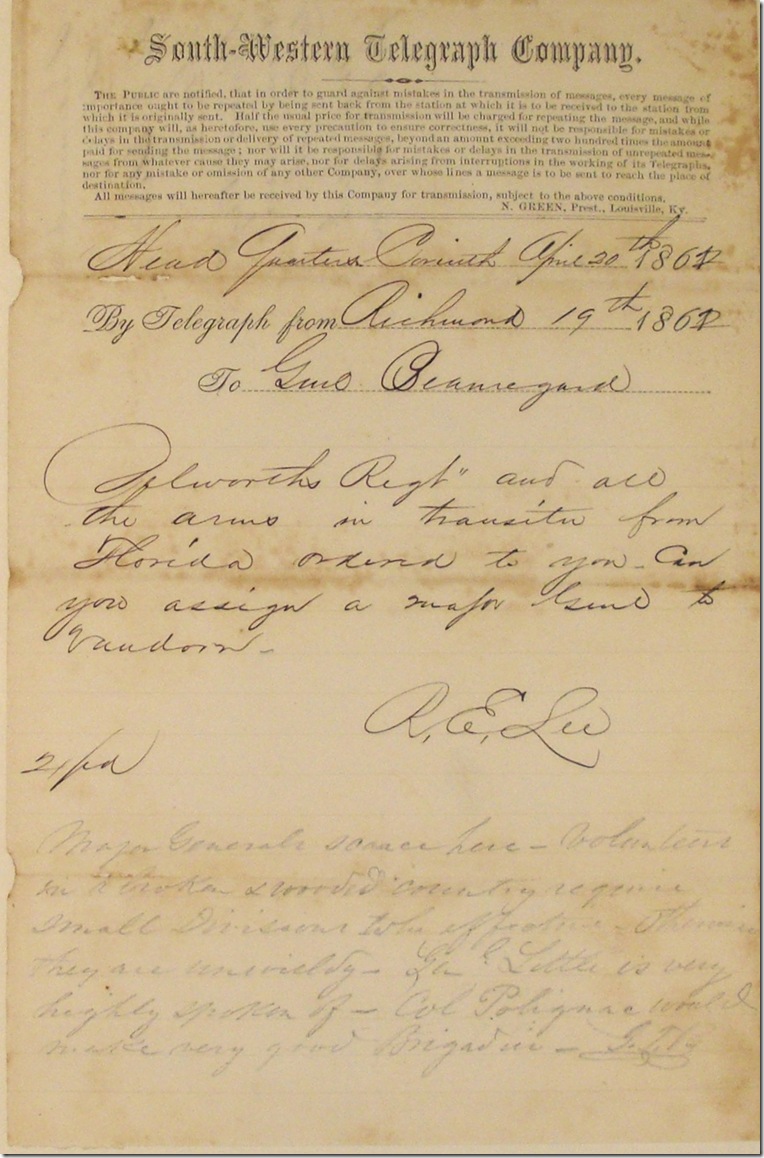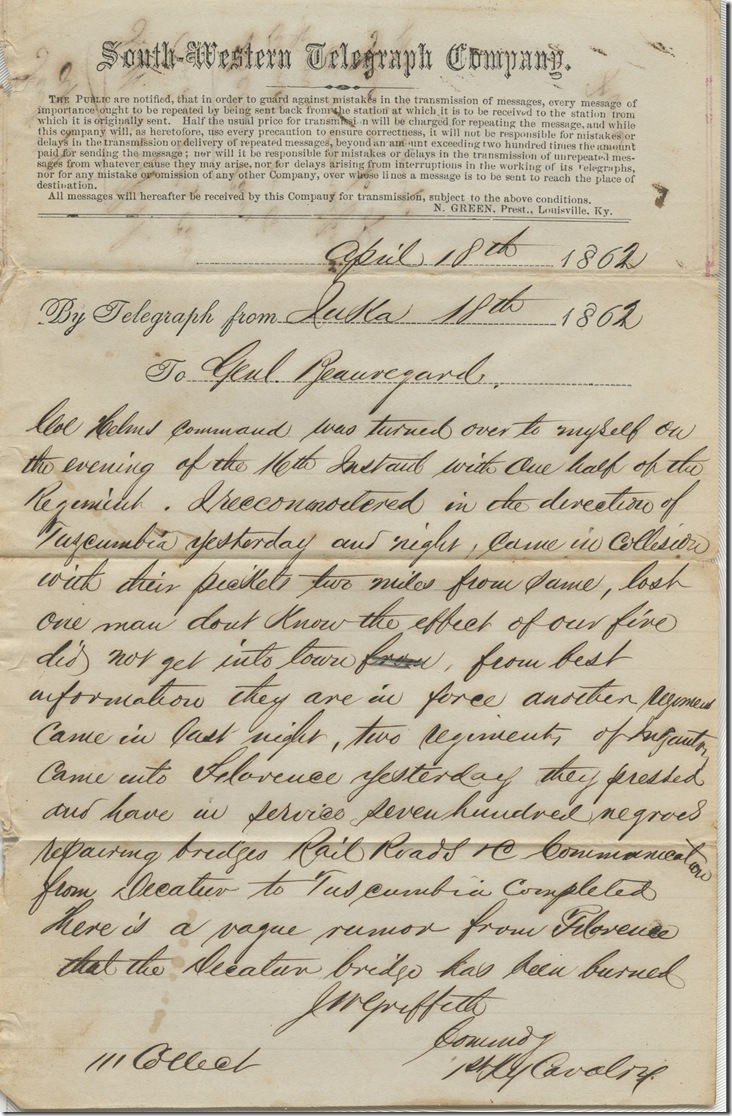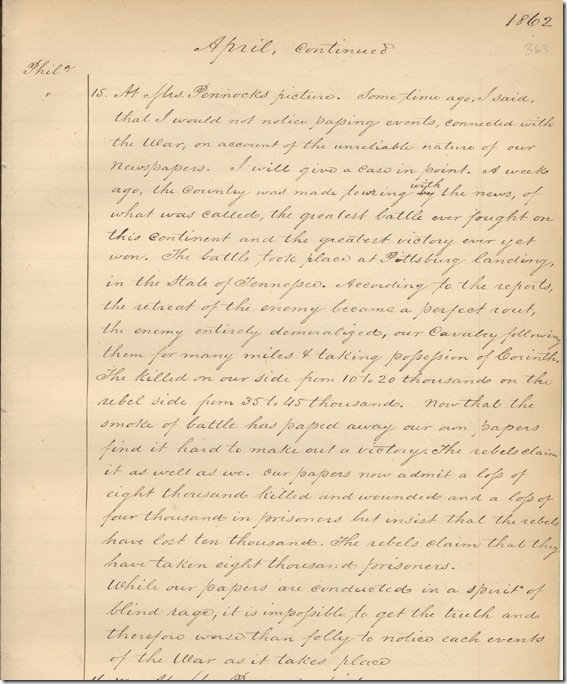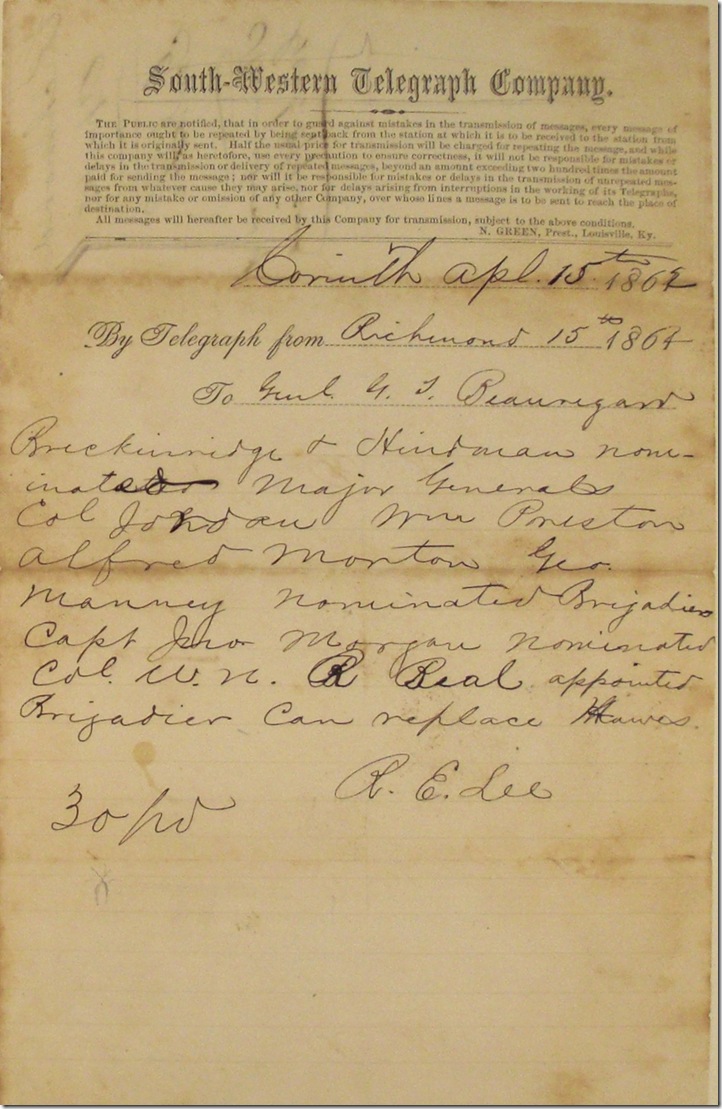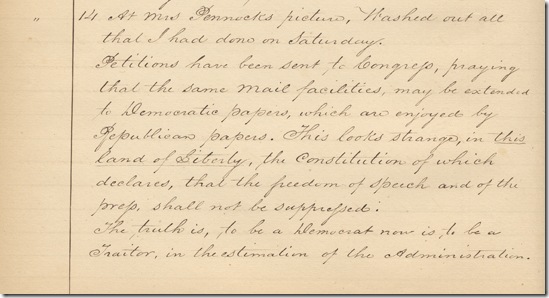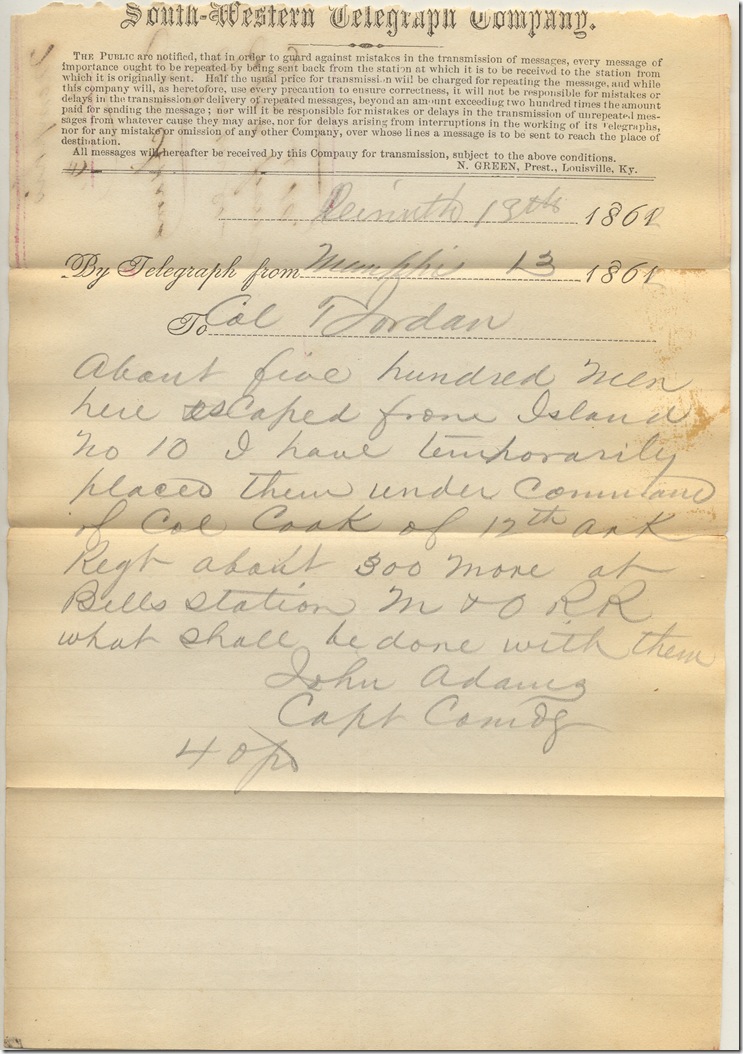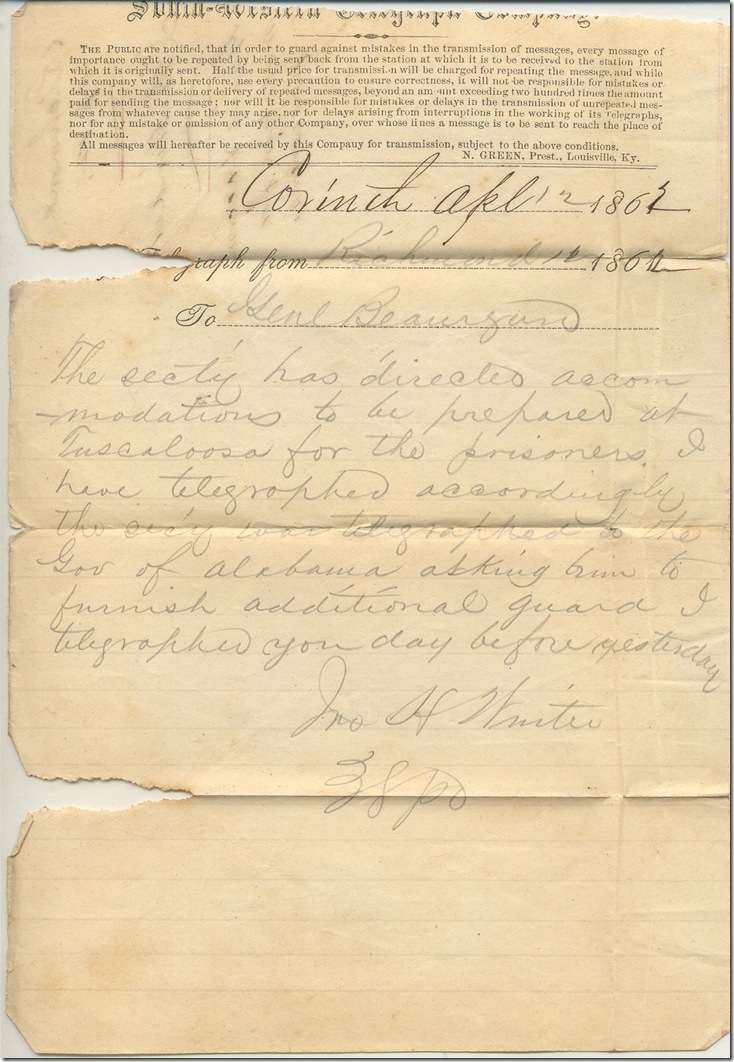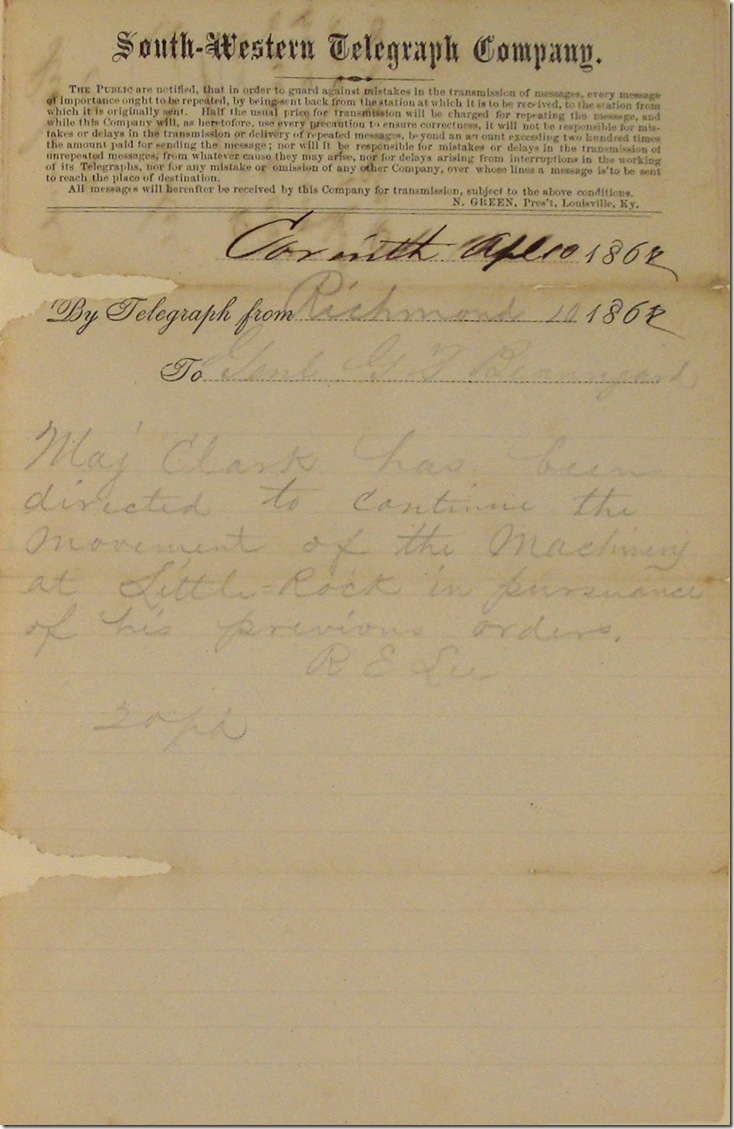Henry and Mary Warner lived in Allegheny City, Pennsylvania, now part of Pittsburgh. They are the great-grandparents of poet Marianne Moore. By the 1860s they had three surviving children: John, Henry, and Anne. Their letters to John, a Presbyterian minister living in Gettysburg, are preserved as part of Marianne Moore’s family papers.
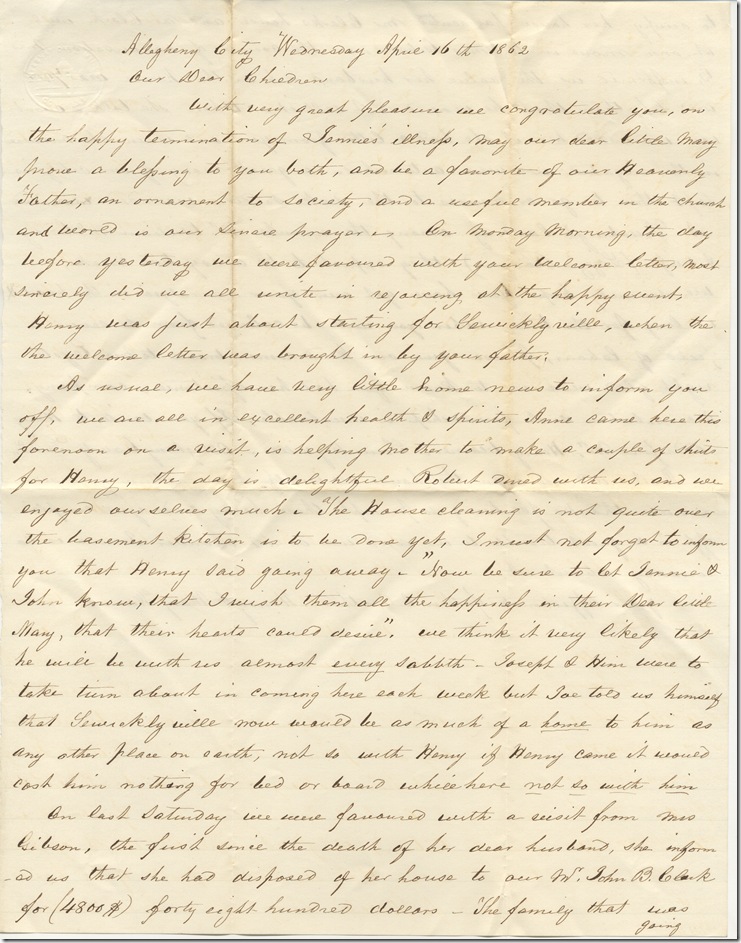
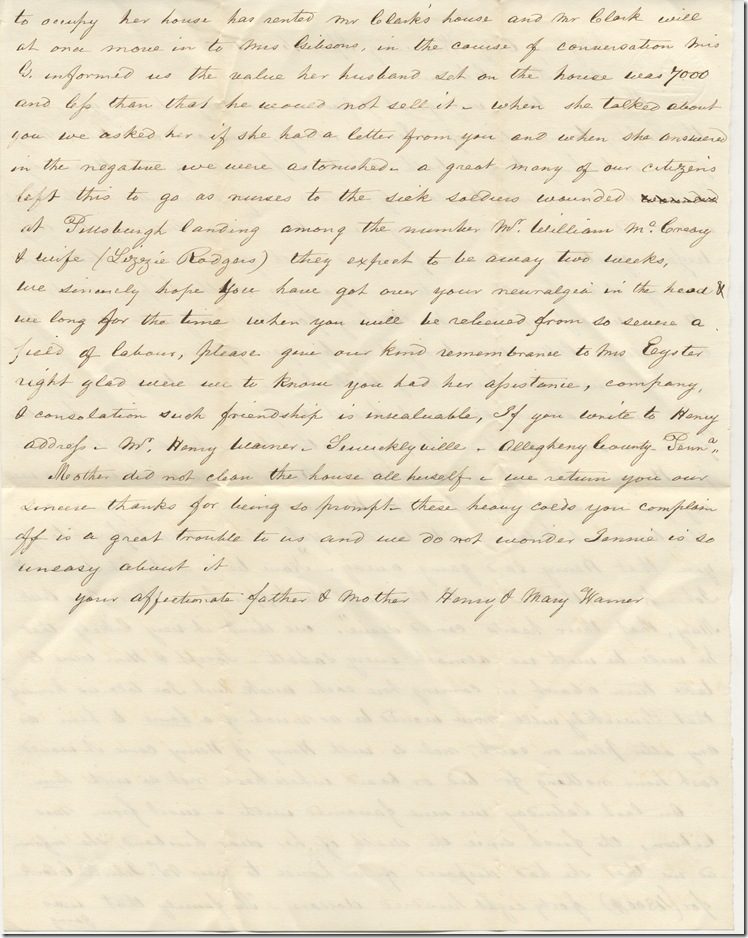
Transcript:
Allegheny City Wednesday April 16th 1862
Our Dear Children
With very great pleasure we congratulate you, on the happy termination of Jennie’s illness, may our dear little Mary prove a blessing to you both, and be a favorite of our Heavenly Father, an ornament to society, and a useful member in the church and world is our sincere prayer—On Monday morning, the day before yesterday we were favoured with your welcome letter, most sincerely did we all unite in rejoicing at the happy event. Henry was just about starting for Sewicklyville, when the the welcome letter was brought in by your father.
As usual, we have very little home news to inform you off. We are all in excellent health & spirits, Anne came here this forenoon on a visit, is helping mother to make a couple of shirts for Henry, the day is delightful. Robert dined with us, and we enjoyed ourselves much. The House cleaning is not quite over the basement kitchen is to be done yet. I must not forget to inform you that Henry said going away—“Now be sure to let Jennie & John know, that I wish them all the happiness in their Dear little Mary, that their hearts could desire.” We think it very likely that he will be with us almost every Sabbath—Joseph & Him were to take turn about in coming here each week but Joe told us himself that Sewickleyville now would be as much of a home to him as any other place on earth, not so with Henry if Henry came it would cost him nothing for bed or board while here not so with him
On last Saturday we were favoured with a visit from Mrs Gibson, the first since the death of her dear husband, she informed us that she had disposed of her house to our Mr. John B. Clark for (4800$) forty eight hundred dollars—The family that was going to occupy her house has rented Mr Clark’s house and Mr Clark will at once move into Mrs Gibsons, in the course of conversation Mrs G informed us the value her husband set on the house was 7000 and less than that he would not sell it—when she talked about you we asked her if she had a letter from you and when she answered in the negative we were astonished—a great many of our citizen’s left this to go as nurses to the sick soldiers wounded at Pittsburgh landing among the number Mr William McCreary & wife (Lizzie Rodgers) they expect to be away two weeks, we sincerely hope you have got over your neuralgia in the head & we long for the time when you will be relieved from so severe a field of labour, please give our kind remembrance to Mrs Eyster right glad we were all to know you had her assistance, company, & consolation such friendship is invaluable. If you write to Henry address—Mr. Henry Warner—Sewickleyville—Allegheny County—Penna
Mother did not clean the house all herself—we return you our sincere thanks for being so prompt—these heavy colds you complain off is a great trouble to us and we do not wonder Jennie is so uneasy about it
Your affectionate father & mother Henry & Mary Warner
Citation: Henry and Mary Warner, autograph letter signed to John Riddle Warner. Allegheny City [Pittsburgh], 16 April 1862. Moore VI:05:05
